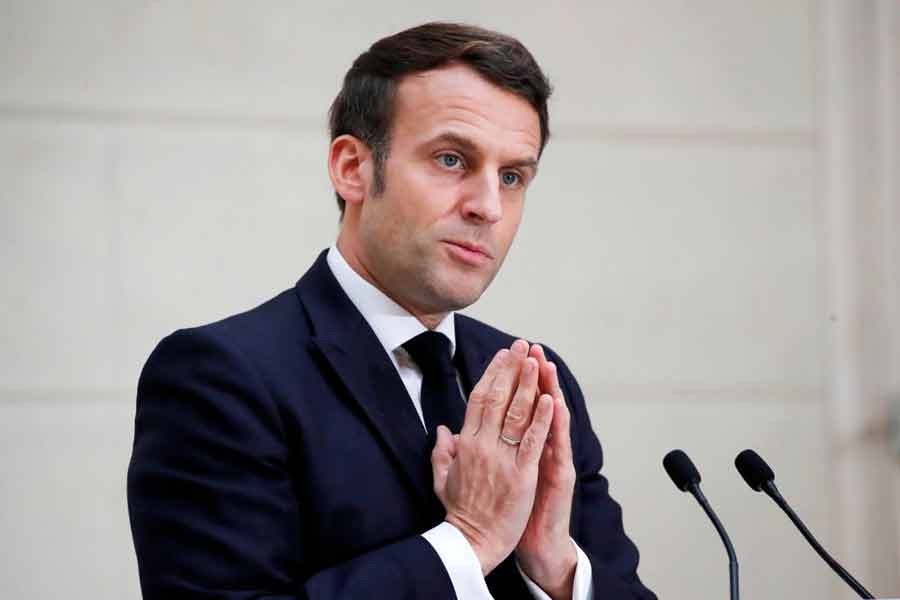French President Emmanuel Macron said he recognised his country's role in the Rwandan genocide and hoped for forgiveness at a memorial in Kigali on Thursday, seeking to reset relations after years of Rwandan accusations that France was complicit in the 1994 atrocities.
"Only those who went through that night can perhaps forgive, and in doing so give the gift of forgiveness," Macron said at the Gisozi genocide memorial, where more than 250,000 victims are buried. Rows of skulls lie there in a mass tomb and the names of the victims are inscribed on a black wall.
"I hereby humbly and with respect stand by your side today, I come to recognise the extent of our responsibilities," he said, speaking against a background of French and Rwandan flags, reports Reuters.
Rwandan President Paul Kagame welcomed Macron's speech, saying at a joint press conference later that "his words were more powerful than an apology".
He said Macron was confronting racism and underscored Rwanda's willingness to reset relations with France, saying "this visit is about the future not the past ... I want to believe today that this rapprochement is irreversible".
The visit follows the release in March of a report by a French inquiry panel that said a colonial attitude had blinded French officials and the government bore a "serious and overwhelming" responsibility for not foreseeing the slaughter.
Kagame praised the "remarkable, independent" report and said it had opened the door for normalising relations.
The report absolved France of direct complicity in the killings of more than 800,000 Tutsis and moderate Hutus - an accusation that Kagame has sometimes made and a point Macron was careful to note in his speech at the genocide memorial.
"The killers who stalked the swamps, the hills, the churches, did not have the face of France. France was not an accomplice," Macron said.
During the first visit to Rwanda by a French leader since 2010, Macron also promised to name a new ambassador, the first accredited French envoy since 2015. France had declined to appoint a new ambassador after Kagame accused it of complicity in the genocide.
Rwanda's finance minister Uzziel Ndagijimana also said that he signed a 60 million euro loan with France to finance access to vaccines and social protection.
The streets of Kigali were quiet on Thursday, with none of the banners or flags that usually accompany a high-level visit. Restrictions on gatherings due to COVID-19 remain in place. But several Rwandans said they welcomed Macron's speech.
Egide Nkuranga, president of Ibuka, an umbrella body of survivors' associations, told Reuters that Macron had shown "commitment to cooperation" by promising to arrest any genocide perpetrators found to be living in France.
“I think that speech was a very strong speech because he asked for forgiveness in a subtle manner but in a strong manner. It was subtle but substantively strong,” said Jean Paul Kimonyo, a former aide to Kagame.
Kagame, a Tutsi, has been the main power in Rwandan politics since his rebel army ended the killings by death squads loyal to the Hutu-led government.
Macron, who has tried to distance France from its colonial past, agreed in April to open the Rwanda archives of former president Francois Mitterrand, in office during the genocide.
Shortly afterwards Rwanda released its own report that found France was aware a genocide was being prepared and bore responsibility for enabling it, continuing in its unwavering support for Rwanda's then-president, Juvenal Habyarimana.
"French officials armed, advised, trained, equipped, and protected the Rwandan government," the report concluded, adding that France covered up its role for years.
It was the shooting down of Habyarimana's plane, killing the president, which unleashed the 100-day frenzy of killings.
From Rwanda, Macron travels to South Africa, where he will meet President Cyril Ramaphosa to discuss COVID-19 and regional crises, including one in Mozambique.


